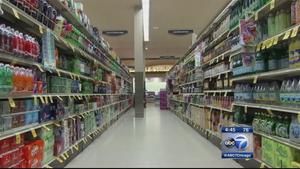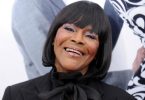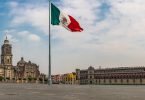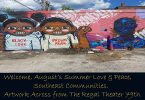SUGARY DRINK TAX CONSIDERED BY CITY COUNCIL COMMITTEE
A Chicago City Council committee met Wednesday to consider a proposed tax on sugary drinks.
In a council chamber packed with beverage industry workers, the sponsoring alderman listed health hazards linked to sugary drinks, including developing diabetes.
“Adults who drink one to two servings a day are 26 percent more likely to develop Type 2 diabetes,” said Ald. George Cardena, 12th Ward.
But one opponent wondered, why target certain beverages?
“In fact, the majority of calories attributed to sugar that we consume actually comes from food,” said Tanya Triche, Retail Merchants Association.
If passed, supporters say the tax would generate over $130 million: one cent per ounce on sugary bottled drinks and syrup used in fountains. Proponents say the ordinance would discourage sugar consumption and set up a fund to promote wellness.
“It clearly stipulates where the money would go and 75 percent would be wellness,” Cardenas said.
But consumers at a West Side store say their health worries do not include getting sick or fat.
“I worry about getting shot. Because of the neighborhood I stay in,” said Deparrish Hozier, a soft drink consumer.
“I think they’re more concerned about being killed right now with this violence going on in the ‘hood rather than sugar killing them,” said Anthony Burns, a soft drink consumer.
Meanwhile, back at City Hall, a former city attorney – now a lawyer for the beverage industry – testified that an additional tax on soft drinks would need state approval.
“The city cannot exceed the statutory maximum by means of a new city ordinance,” said Mara George, attorney for beverage industry.
And there is stiff resistance in the city’s restaurant industry, already dealing with recent increases in the minimum wage and the county sales tax.
“Our restaurant businesses in the City of Chicago will lose our business because our prices keep going up,” said Sam Toia, Illinois Restaurant Association.
The session today was a “subject matter hearing,” meaning it was only to gather information and there was no vote to advance the measure to the full council.
Without saying so, the beverage and restaurant industry lawyers indicated if the city did pass such an ordinance to tax sugary drinks, they would challenge it in court.







